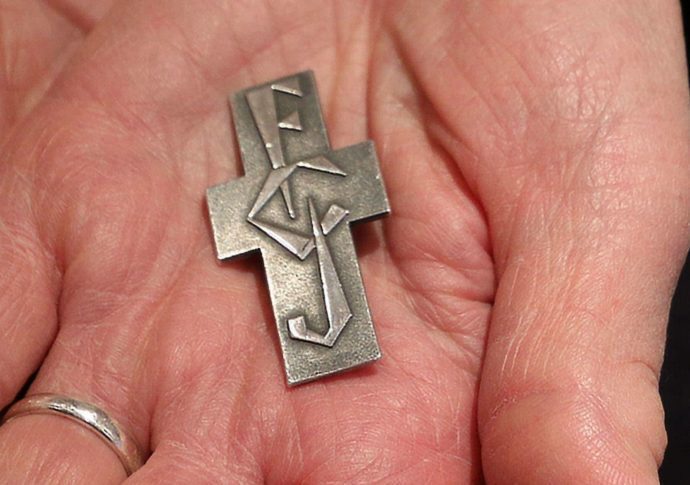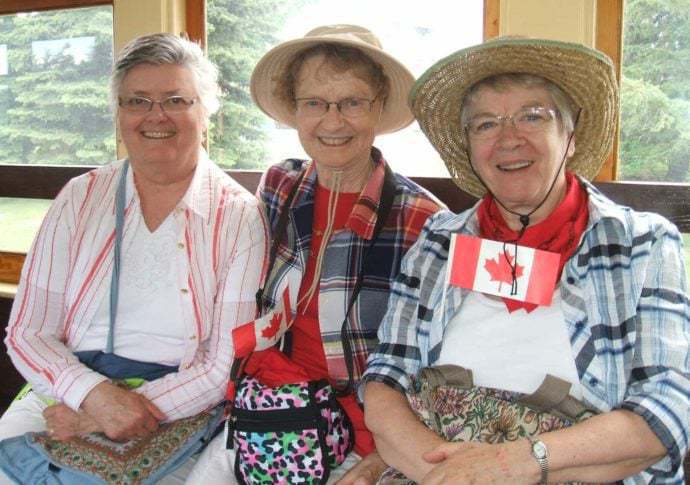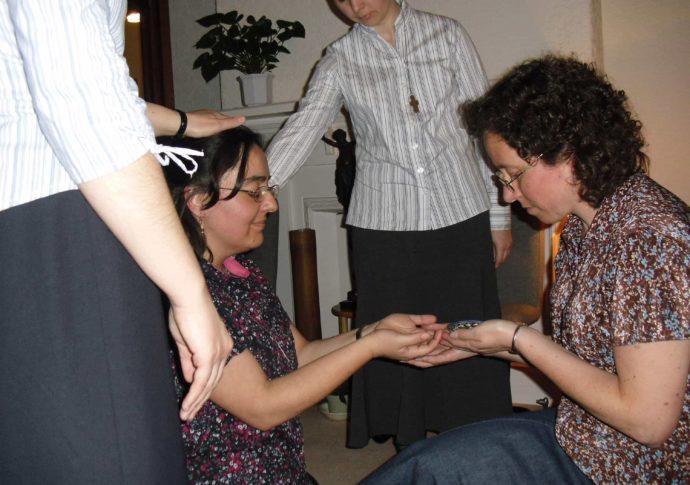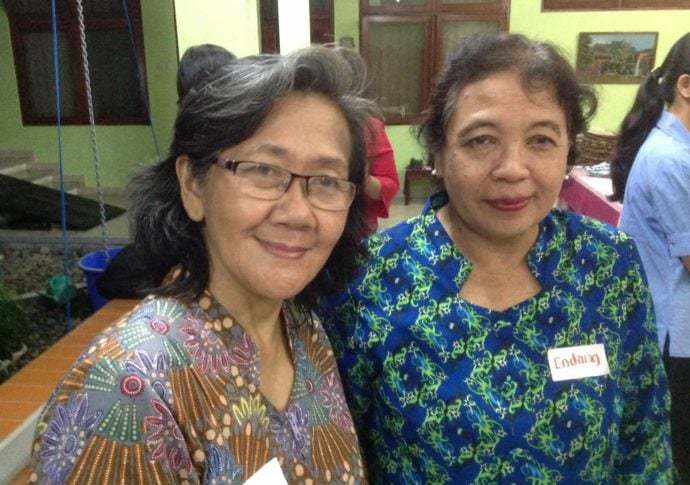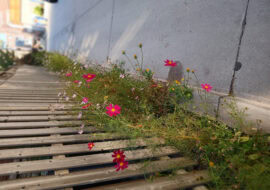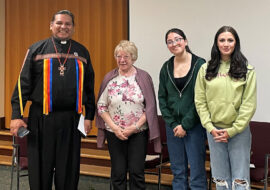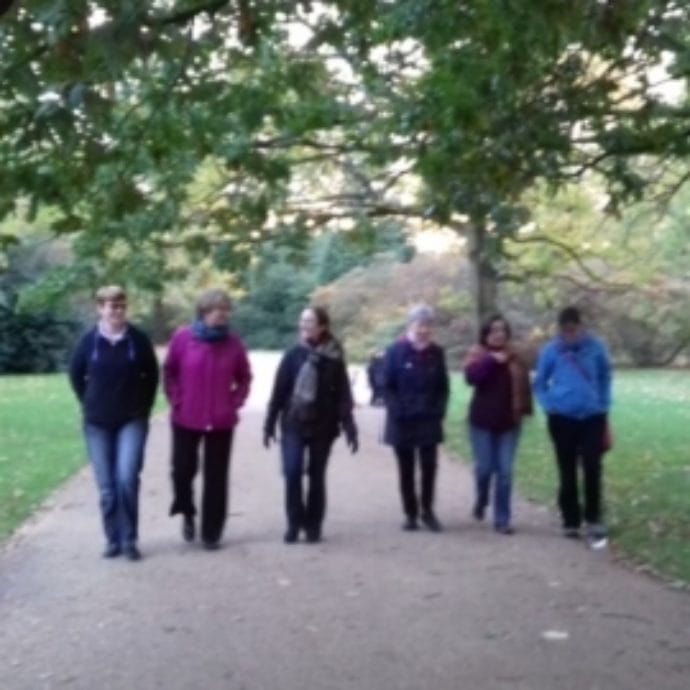By MaryAnne, FCJ sister from Malta who has just finished her postgrad studies in spirituality and ecology at Regis St Michael’s Faculty of Theology, Toronto, and will soon start working at the FCJ Spirituality Centre in London. Follow FCJ Spirituality Centre on facebook to find out about their current offering.
Growing up in Malta has had a huge influence on my relationship with food. First, due to the lack of fresh water and land, Malta does not grow a lot of food; there is no abundance, except maybe of prickly pear – a cactus plant that grows everywhere and whose fruit are hard to get to but delicious. Almost all the non-perishable food comes from abroad and is expensive, so growing up, we ate what was in season and growing on the island – potatoes, carrots, peppers, cabbage, squash, watermelon, capers, basil, thyme, lemons, melons, tomatoes, oranges, figs, olives… I remember waiting eagerly for strawberry season each year. It was a real treat to bite into that first strawberry, always so sweet and juicy! We ate with the seasons and food was precious because my parents still remembered the scarcity after World War II. Food was never wasted in our household, and we were always taught (and sometimes forced!) to eat all that was on our plate.

Maltese culture, like many other cultures, is centred around food. We meet around nibbles especially the traditional ricotta or pea pastizzi, we gather for pasta nights, we have special foods for baptisms, carnival, Lent, weddings. Whatever else is happening, food is happening. Food is used to celebrate, or to show concern when things are difficult. Food is the glue that builds community.
Malta is also a Catholic country, and the church was very central to my life. Our local parish organised fundraisers around food, and we celebrated the feast of the parish saint each year with a festa where the centre of the town was turned into a fairground, with games, brass bands, fireworks and multiple kiosks selling food. The food season and the church season come together in prinjolata – a sickly-sweet pudding that is eaten in carnival before the Lenten fast; kwarezimal – the sweet that you can eat during Lent; figolli – the lamb shaped confection that reminds us of the victory of the lamb at Easter; and the list goes on. Faith and food are inextricably linked in the life of the Maltese. Bread is of utmost importance in this part of the world, bakers who make only bread (no cakes or other goods) are still common in the villages and most people buy bread each day. This means that any link to bread in scripture and religious practice is instinctively understood. The idea of Eucharist as the ‘bread of life’ and the prayer ‘Give us this day our daily bread’ resonate in the hearts and minds of the people. For the first twenty years of my life I was steeped in this culture, it gave be security and identity and shaped me in ways that I am only now starting to recognise.
It was really when I moved to the UK in 1999 and started to make decisions myself about what to eat that I really started to think critically about food. Till then I had lived at home where my mum was the cook, and no one was allowed in the kitchen. I did not learn to cook until I entered the convent – and I took to it like a duck to water. I discovered the joys of mixing textures and flavours, I experimented with food from other cultures (one of the joys of living in international community) and with ingredients that were not available to me before. I also began to think about food for health and became increasingly aware of processed foods, refined sugars, trans fats and other ‘baddies’ that had crept into my diet due to convenience.
I had always been aware of the environment and around this time it became clear to me that the meat industry was responsible for greenhouse gas emissions and a disproportionate use of the Earth’s resources, particularly water. I became (mainly) vegetarian. I would choose to be vegetarian but would sometimes eat chicken or bacon if it was there, to avoid making a fuss. I then became more aware of factory farming and issues around justice for non-human animals, and migrant workers who work in the meat industry, and meat became less appetising. It was living with cats and really having a relationship with a non-human animal that made me go more strictly vegetarian. I could not imagine eating another sentient life form. The course on animal ethics that I took this past year has confirmed this choice for me and is challenging me to go more vegan. I am on that journey now.
When I am living in North America or northern Europe, it is easy to be vegetarian as it has become a more common choice and there are more options. My time in the Philippines was more of a challenge. Sometimes it is a challenge to stick to being vegetarian and be seen to reject hospitality, or to be fussy in a country where many people would be happy to eat from the garbage (and many do). This is an internal struggle that I am familiar with. More recently it has been easier to simply explain the reason for my food choice and not be too worried of what the other person might think of me.
Apart from vegetarianism, I have become increasingly aware of other ecological issues around food. This makes a trip to get groceries a continuous moral dilemma. Do I choose what is wrapped in plastic, or what is loose or packaged in cardboard? Do I look at the food miles that the food has travelled, or focus on its ethical credentials like fairtrade or rainforest alliance? Do I buy from the big firms, or do I choose to buy local and from small businesses? Do I choose organic for all products? All these considerations must be balanced by the time available for shopping, and the constraints of the food budget. This means that I sometimes can make the best choice, i.e. local, fairtrade, organic, no packaging, and sometimes I compromise because that is all I can afford, or because the organic produce is in plastic, and the fairtrade produce comes from the other side of the world. I am becoming more aware that there is no best choice. I live in a system that drives me to make choices I would rather not make.
The Covid-19 pandemic gave me a new opportunity. Because of the extra time at home, our community house in Liverpool grew some crops in the back yard, courgette, rhubarb, tomatoes, even some strawberries. We foraged blackberries, crab apple and rosehip and made jams. I learnt how to make bread and perfected this art as the lockdowns progressed. I had time to explore how to cook more with beans and lentils, and enjoyed the process of cooking everything from scratch.
I love eating and since I learnt to cook many years ago it has been one of my great pleasures to cook new things, and to share my cooking with others. I love having people over for dinner, and I love it when people come to the community and we cook together. There is something bonding about chatting in a kitchen while preparing vegetables, kneading dough or stirring the pot. The homey smells somehow enable the conversation to go deeper and be more real. The FCJ sisters understand companionship to be one of the key facets of our charism. Companionship comes from the Latin for ‘with bread.’ I hope and pray that our FCJ communites continue to be places of true companionship.






